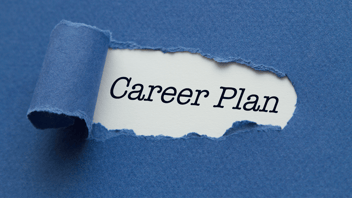
Stress is NOT the Problem

In this article, Mark McKeon, author, former AFL High Performance Coach and Collingwood Hall of Fame member, will discuss the role stress plays in a busy corporate life.
Are you are a hard worker and a time pauper? Do you shoulder a lot of responsibility and deal with a lot of pressure, often without respite? Does this constant lack of time mean you end up stressed and frazzled every day? If the answer is yes then you definitely DO have a problem, but it might surprise you to find out that it is not stress. Stress is not your problem.
Stress allows us to perform at a peak performance level we could never reach if our lives were stress free.
Stress releases adrenaline into our bloodstream along with free floating fatty acids and cortisol. This creates a cocktail of chemicals so powerful it would be illegal if taken as a sports supplement, yet many of us, ‘use’ it every day.
Our heart rate accelerates while our breathing becomes rapid and shallow. Peripheral blood vessels constrict so that more blood and oxygen goes to where it’s needed most, our central core. Nervous responses become faster and more acute and sensory receptors are blocked so that we don’t feel pain if we become ill or injured. Even our eyesight and hearing sharpens. We have more energy, more drive, greater strength and a higher tolerance for pain and fatigue.
You can tell when people have this high level of adrenaline because everything in their world moves faster. When they drive they just have to find a way to keep moving, even if they travel further and it takes longer. As long as they don’t have to stop at a red light. Heavy traffic becomes a personal insult and a stop sign becomes just a suggestion!
Stress drives us to reach levels of achievement and efficiency we would never approach without being put under pressure. Stress creates an accelerated level in our entire being that enables us to cope with what may seem to be an impossible workload. We develop the ability to work longer and sleep less, first as a temporary and abnormal state, but one that quickly becomes a habit. Stress makes us a machine…but machines break down if not maintained correctly…and this is where we uncover what the problem really is.
The Problem is Lack of Recovery
People who are constantly under stress and constantly have a high level of adrenaline in their bloodstream find it impossible to slow down, even when the opportunity does arise. This is the crux of the issue for many people. A hectic and busy workload is only part of the problem in many busy corporate lives. The other half is an office culture or personal habit of never taking recovery time.
Have you taken your four weeks annual leave, even if it wasn’t all as a block, each year for the past three years in succession?
Probably not. According to the ABS, only 15% of people at managerial or professional level have, and it’s getting worse. So when do you rest and recover?
People who never take breaks or holidays seem invincible, right up until the point that they collapse or they get sick from things that most people don’t get better from.
Lack of recovery leads to burn out. Busy people with burgeoning responsibilities or opportunities reach the point that they become literally addicted to being busy. They just can’t slow down.
Can you think of a time in your life when you have finally completed a demanding project, been involved in a family wedding or perhaps played in a sporting final, only to feel an overwhelming sense of being spent and empty when the event has ended? That’s the moment when the adrenaline has drained from your body. This is a perfectly natural part of a healthy cycle of performance and recovery and we need to learn to accept it.
This feeling of ‘being flat’ is your body’s way of saying it’s time to take a break. Unfortunately, people who are hooked on adrenaline can’t allow this to happen so they force their way out of their lethargy by taking on another task, chasing another goal or even having a confrontation with a colleague or a client, anything to top up their adrenaline.
Take a Break
Athletes understand the need to train hard and then recover; to compete with every ounce of their body and soul and then recuperate. We should think of ourselves as corporate athletes. It’s admirable to be constantly looking to boost performance but we can achieve this and still have a life if we take three steps to maximise our performance both in the office and in life.
Step 1.
Take your holidays. Smart, cutting edge organisations around the world (including Six Degrees Executive) no longer allow people to keep working and build up holiday arrears. They understand that in the long-term this creates fatigued and resentful employees who lose productivity, burn out, leave, fall ill or worse.
Although, you have to take responsibility as an individual. Everyone can be replaced plus or minus 10%. I have never ever, even once met someone who said to me, “Mark, you told me to take a holiday and now I regret it.” Forget the fallacy of quality time and take some quantity time.
Step 2.
Do your absolute best not to feel guilty about it. Remember, the workload is only half the reason, the other half is the pressure you put on yourself. It can be tough when others at your work don’t take their holidays. However, you are not letting the team down by taking yours, you are setting the example.
Step 3.
Make a ritual out of shorter term breaks, what I call ‘No Zones’. Create a boundary that provides you with at least one, four hour block of escape time each week. You can play golf, watch videos, walk, visit galleries, read a book, fly a kite or go for a long lunch. While I have a personal bias to exercise, you should choose something that works for you.
We all need some time to get out of our busy mind set and allow our subconscious to ‘reset it’s default settings’, wean our body off adrenaline and get back to being the way we are supposed to be. We need time to relax and recover. This is an investment in you. You will be fresher and quicker, have more natural energy and be less prone to errors or eruptions. You will achieve more in less time.
Your aim is to go to bed tired but not stressed.
Use stress to challenge you to greater heights. Save adrenaline for when you really need it and plan regular recoveries so that you are always ready for the next challenge.
Mark McKeon is the designer of the innovative and widely practiced ‘Every Day Counts’ and ‘Go Zone’ training programs. He is a Director of MMA training specialising in leadership development, resilience and workplace effectiveness.
You can contact Mark for more information on 1300 480 990 or mark@mmateam.com.au
Related


Developing a Career Plan
Just as any successful organisation meticulously crafts a clear and strategic business plan to...

What to expect when meeting a recruiter for an interview
Meeting with a recruitment consultant is an opportunity to demonstrate how you will present for a...


 Accessibility
Accessibility
